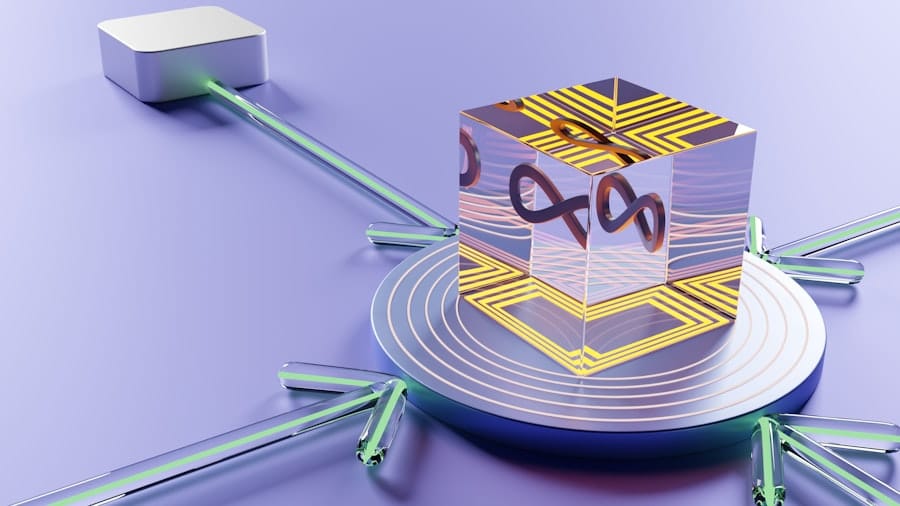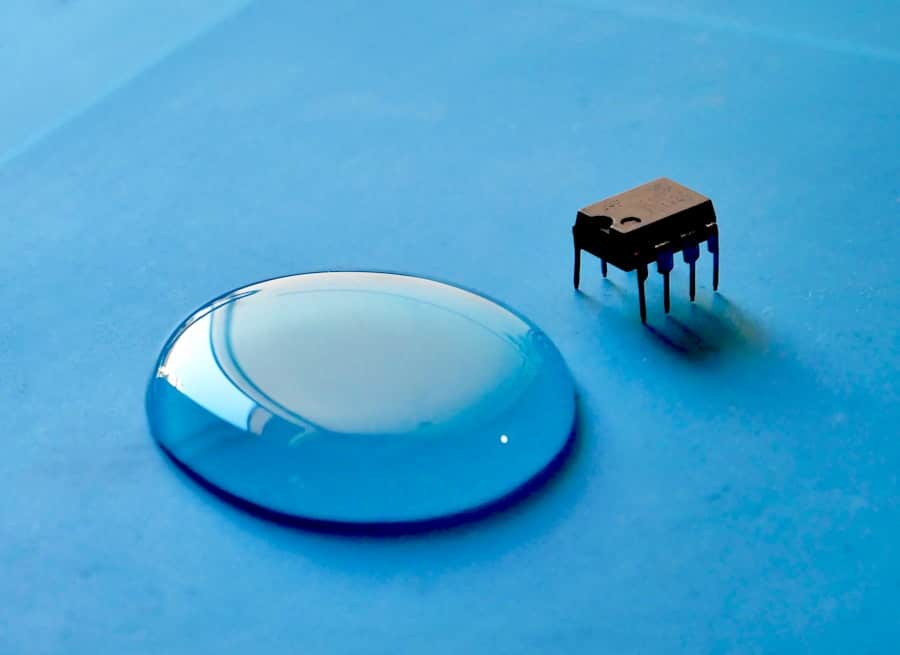Quantum sensors represent a groundbreaking advancement in measurement technology, leveraging the principles of quantum mechanics to achieve unprecedented levels of sensitivity and precision. Unlike classical sensors, which rely on macroscopic phenomena, quantum sensors exploit the unique behaviors of quantum states, such as superposition and entanglement. This allows them to detect minute changes in physical quantities, such as magnetic fields, gravitational forces, and time intervals, with remarkable accuracy.
As the demand for high-precision measurements continues to grow across various fields, from navigation to medical imaging, quantum sensors are poised to revolutionize how we perceive and interact with the world around us. The burgeoning field of quantum sensing is not merely an academic pursuit; it has practical implications that could transform industries. In navigation technologies, for instance, the integration of quantum sensors promises to enhance the accuracy and reliability of positioning systems.
Traditional navigation methods, such as GPS, can be susceptible to interference and signal degradation, particularly in urban environments or remote areas. Quantum sensors offer a potential solution by providing alternative means of determining location and orientation that are less reliant on external signals. As researchers continue to explore the capabilities of quantum sensors, their impact on navigation technologies is becoming increasingly evident.
Key Takeaways
- Quantum sensors utilize quantum technology to achieve high precision and sensitivity in measuring various physical quantities.
- Quantum sensor technology is based on principles of quantum mechanics, such as superposition and entanglement, to achieve unprecedented levels of accuracy and sensitivity.
- Quantum sensors have the potential to revolutionize navigation technologies by providing highly accurate and reliable measurements of position, velocity, and orientation.
- The advantages of quantum sensors in navigation include improved accuracy, reduced drift, and enhanced performance in challenging environments such as urban canyons and indoor spaces.
- Quantum sensors have applications in navigation systems for autonomous vehicles, drones, maritime navigation, and aerospace, offering significant improvements in performance and reliability.
Quantum Sensor Technology and Principles
At the heart of quantum sensor technology lies the manipulation of quantum states to measure physical phenomena with exceptional precision. Quantum sensors typically utilize particles such as photons, atoms, or ions, which can exist in multiple states simultaneously due to the principle of superposition. This property allows quantum sensors to perform measurements that are fundamentally different from those conducted by classical sensors.
For example, a quantum sensor can measure a magnetic field by exploiting the spin states of electrons or atomic nuclei, enabling it to detect changes that would be imperceptible to conventional devices. Entanglement is another critical principle that underpins quantum sensor technology. When two or more particles become entangled, the state of one particle becomes intrinsically linked to the state of another, regardless of the distance separating them.
This phenomenon can be harnessed in quantum sensors to enhance measurement sensitivity. For instance, in atomic interferometry, entangled atoms can be used to create interference patterns that reveal minute variations in gravitational fields or inertial forces. By employing these quantum principles, researchers are developing sensors that can achieve sensitivities orders of magnitude greater than their classical counterparts.
Quantum Sensors in Navigation Technologies

The application of quantum sensors in navigation technologies is a rapidly evolving area of research that holds significant promise for improving positioning accuracy and reliability. Traditional navigation systems often rely on satellite signals, which can be disrupted by environmental factors such as buildings, foliage, or atmospheric conditions. Quantum sensors offer an alternative approach by enabling navigation based on fundamental physical principles rather than external signals.
For example, quantum accelerometers can measure changes in velocity with high precision, allowing for inertial navigation systems that do not depend on GPS. One notable example of quantum sensor technology in navigation is the development of cold atom interferometers. These devices utilize ultra-cold atoms that are manipulated using laser beams to create interference patterns sensitive to gravitational fields.
By measuring these patterns, researchers can determine changes in position and velocity with remarkable accuracy. Such systems have the potential to provide continuous navigation solutions even in environments where GPS signals are weak or unavailable, such as underwater or underground.
Advantages of Quantum Sensors in Navigation
The advantages of quantum sensors in navigation are manifold and stem from their inherent sensitivity and precision. One of the most significant benefits is their ability to operate independently of external signals. This characteristic makes quantum sensors particularly valuable in scenarios where traditional navigation systems may falter due to signal loss or interference.
For instance, in urban canyons or densely populated areas where GPS signals can be obstructed, quantum sensors can provide reliable positioning information without relying on satellite data.
The ability to measure minute changes in physical quantities allows for enhanced navigation capabilities.
For example, a quantum gravimeter can detect variations in gravitational acceleration caused by changes in terrain or subsurface structures. This level of detail can improve mapping and surveying applications significantly. Additionally, the high sensitivity of quantum sensors enables them to detect subtle shifts in motion or orientation, which can enhance the performance of autonomous vehicles and drones.
Applications of Quantum Sensors in Navigation
The applications of quantum sensors in navigation extend across various domains, including aerospace, maritime, and terrestrial navigation systems. In aviation, for instance, quantum inertial sensors can provide precise measurements of acceleration and rotation, enabling aircraft to navigate accurately even when GPS signals are unavailable during flight maneuvers or in challenging weather conditions. This capability is particularly crucial for military operations where stealth and reliability are paramount.
In maritime navigation, quantum sensors can enhance underwater positioning systems by providing accurate measurements of depth and movement without relying on surface-based signals. Quantum gravimeters can be employed to map underwater topography with high precision, aiding in resource exploration and environmental monitoring. Furthermore, terrestrial applications include the use of quantum sensors in autonomous vehicles, where they can improve navigation accuracy by providing real-time data on vehicle motion and orientation.
Challenges and Limitations of Quantum Sensors in Navigation

Despite their promising capabilities, the deployment of quantum sensors in navigation is not without challenges and limitations. One significant hurdle is the complexity and cost associated with developing and maintaining quantum sensor systems. The technology often requires sophisticated setups involving ultra-cold environments or intricate laser systems, which can be prohibitively expensive for widespread adoption.
Additionally, the fragility of quantum states makes these sensors sensitive to environmental disturbances such as temperature fluctuations or vibrations, which can affect their performance. Another challenge lies in integrating quantum sensors with existing navigation infrastructure. While quantum sensors offer unique advantages, they must be compatible with current systems to ensure seamless operation.
This integration requires extensive research and development efforts to create hybrid systems that leverage both classical and quantum technologies effectively. Furthermore, regulatory frameworks may need to evolve to accommodate the new capabilities offered by quantum sensors while ensuring safety and reliability in navigation applications.
Future Developments and Potential of Quantum Sensors in Navigation
The future developments in quantum sensor technology hold immense potential for transforming navigation systems across various sectors. Ongoing research aims to enhance the robustness and scalability of quantum sensors, making them more accessible for commercial applications. Innovations such as miniaturization techniques could lead to portable quantum sensors that can be easily integrated into consumer devices or vehicles without compromising performance.
Moreover, advancements in machine learning and artificial intelligence could further enhance the capabilities of quantum sensors in navigation. By combining real-time data from quantum sensors with advanced algorithms, it may be possible to develop adaptive navigation systems that learn from their environment and optimize performance based on changing conditions. This synergy could lead to breakthroughs in autonomous navigation technologies, enabling vehicles to navigate complex environments with unprecedented accuracy.
The Impact of Quantum Sensors on Navigation Technologies
The impact of quantum sensors on navigation technologies is poised to be transformative as researchers continue to unlock their potential across various applications. By providing high-precision measurements independent of external signals, quantum sensors offer solutions to some of the most pressing challenges faced by traditional navigation systems today. As advancements continue in this field, we may witness a paradigm shift in how we navigate our world—one that embraces the principles of quantum mechanics to enhance our understanding and interaction with our environment.
The integration of quantum sensors into navigation technologies not only promises improved accuracy but also opens new avenues for exploration and innovation across multiple industries. As we look ahead, it is clear that the future of navigation will be intricately linked with the advancements made possible by quantum sensing technology, paving the way for safer and more efficient travel across land, sea, and air.
In the rapidly evolving field of navigation technologies, quantum sensors are making significant strides by offering unprecedented precision and reliability. These advancements are not only transforming traditional navigation systems but are also influencing the development of wearable technology. For instance, smartwatches are increasingly incorporating advanced sensors to enhance user experience and functionality. An interesting related article that delves into the capabilities of modern smartwatches is com/the-best-smartwatch-apps-of-2023/’>The Best Smartwatch Apps of 2023.
This article explores how the latest apps are leveraging cutting-edge sensor technology to provide users with innovative features, thereby complementing the advancements seen in quantum sensor navigation technologies.
FAQs
What are quantum sensors?
Quantum sensors are devices that use the principles of quantum mechanics to measure and detect various physical quantities such as acceleration, rotation, magnetic fields, and gravity.
How are quantum sensors advancing navigation technologies?
Quantum sensors are advancing navigation technologies by providing more accurate and precise measurements of position, velocity, and orientation. They are also enabling navigation in environments where traditional sensors may be limited, such as underground or underwater.
What are some examples of quantum sensors in navigation technologies?
Examples of quantum sensors in navigation technologies include quantum gyroscopes for measuring rotation, atomic clocks for precise timekeeping, and quantum magnetometers for detecting magnetic fields.
What are the benefits of using quantum sensors in navigation technologies?
The benefits of using quantum sensors in navigation technologies include improved accuracy, reliability, and stability of measurements, as well as the ability to operate in challenging environments and conditions.
How do quantum sensors differ from traditional sensors in navigation technologies?
Quantum sensors differ from traditional sensors in navigation technologies by leveraging the unique properties of quantum mechanics, such as superposition and entanglement, to achieve higher sensitivity and precision in measurements.

